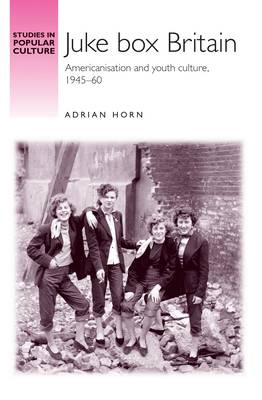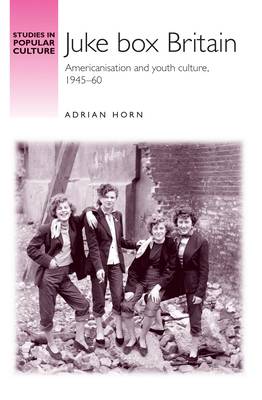
Nos liseuses Vivlio rencontrent actuellement des problèmes de synchronisation. Nous faisons tout notre possible pour résoudre ce problème le plus rapidement possible. Toutes nos excuses pour la gêne occasionnée !
- Retrait gratuit dans votre magasin Club
- 7.000.000 titres dans notre catalogue
- Payer en toute sécurité
- Toujours un magasin près de chez vous
Nos liseuses Vivlio rencontrent actuellement des problèmes de synchronisation. Nous faisons tout notre possible pour résoudre ce problème le plus rapidement possible. Toutes nos excuses pour la gêne occasionnée !
- Retrait gratuit dans votre magasin Club
- 7.000.0000 titres dans notre catalogue
- Payer en toute sécurité
- Toujours un magasin près de chez vous
Description
British teenagers witnessed immense cultural change in the period following the second world war. There were less than 100 juke boxes in Britain in 1945 and over 15,000 by 1958. Over the same period there was a similar unprecedented expansion of casual youth venues in the form of cafés, snack, milk and coffee bars where young people could hear the sounds of hot American jazz and rock 'n' roll. It has been a common assumption among academics and cultural historians alike that British youth between 1945 and 1960 underwent a period of massive 'Americanisation'. Juke Box Britain contests this view maintaining that American popular-cultural influences were not examples of cultural domination but simply influences that combined with existing styles to create distinctly British style fusions. Juke Box Britain is suitable for students of cultural, social and design histories as well as cultural studies and provides fascinating reading for youth culture and juke box enthusiasts.
Spécifications
Parties prenantes
- Auteur(s) :
- Editeur:
Contenu
- Nombre de pages :
- 240
- Langue:
- Anglais
- Collection :
Caractéristiques
- EAN:
- 9780719079078
- Date de parution :
- 01-04-09
- Format:
- Livre relié
- Format numérique:
- Ongenaaid / garenloos gebonden
- Dimensions :
- 155 mm x 234 mm
- Poids :
- 521 g







